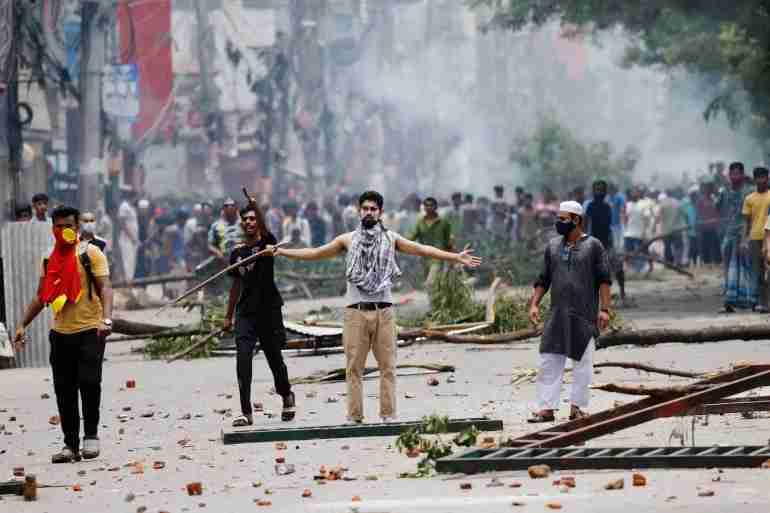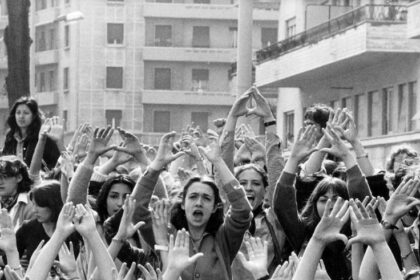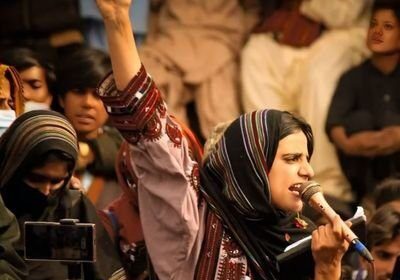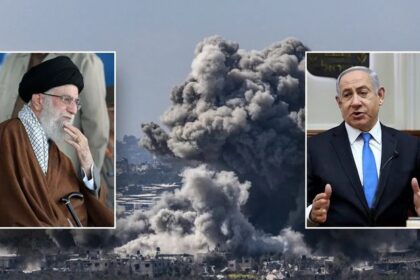The world witnessed a strange scene when, on 05 August 2024, the ruling Prime Minister of Bangladesh, Sheikh Hasina Wajid, resigned and fled the country to seek political asylum in India. Videos of her boarding a military chopper surfaced on social media, which influenced the protesters to storm the Prime Minister’s house, wave flags in the streets, chant revolutionary songs, and celebrate the end of an oppressive regime. The resignation of Sheikh Hasina Wajid was announced by the Army Chief Waker-uz-Zaman on national television. Arrangements were made for an interim government, which would be headed by Dr. Muhammad Yunus, the Nobel Prize winner who had been imprisoned by Hasina’s government over 200 trumped-up cases. Hasina Wajid had read the writing on the wall about the definite sunset of her 15-year-long oppressive democratic regime.
Hasina Wajid in Power
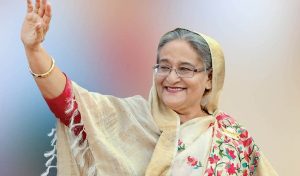
Hasina Wajid, the daughter of Sheikh Mujib-ur-Rehman, the founder of Bangladesh, first came to power in 1996. She came to power for the second time after her victory in the 2008 general election, sweeping over almost 50% of the votes and securing 230 seats in the election. Hasina Wajid put the opposition in jail, controlled the media, tortured political opponents, and spread influence over the legislature, election commission, and military. She was a one-woman authoritarian leader whose aim was to acquire power and suppress differences of opinion. All in all, she was a staunch believer in the “Machiavellian Principles of Power,” which are ruthless and vindictive. She managed to win the 2014, 2018, and 2024 general elections, which were overtly managed, securing more than 70% of the seats. The opposition leaders were jailed, and the elections were boycotted by opposition parties.
Student Protests Against Quota System
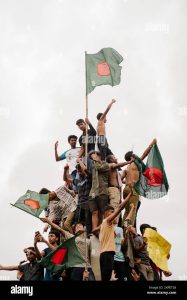
The students were protesting against the quota system, which reserved 30% of government jobs for the descendants of freedom fighters of the 1971 war against Pakistan. The jobs were being misused to honor the party workers of the Awami League and discriminate against the deserving, talented youth in government jobs. Instead of handling the protesters with talks and restraint, the government deployed the infamous Rapid Action Battalion (RAB), Border Guards Bangladesh (BGB), police, and the military to exert violence on the protesters. The situation escalated when students were killed with straight bullets, murdering 1500 protesters, resembling the Tiananmen Square Massacre in China, 1989. Mobile and internet services were shut down; moreover, forces restricted the freedom of movement and expression. The blatant genocide of young students proved to be the last nail in the coffin of the Hasina Wajid government.
Current Scenario in Bangladesh
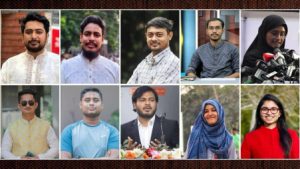
The chaotic fall of Sheikh Hasina created a power vacuum in the political system of Bangladesh, which is dangerous for a country. Non-democratic forces can take advantage, given there have been multiple martial laws in history. The interim government led by Dr. Muhammad Yunus has failed to control the law and order situation. Robberies, muggings, and extortion by violent groups have worsened the situation. The people are terrified about the security of their lives and property in a deteriorating fiasco unfolding before their eyes. The interim government has announced elections to be held in December, given the mounting pressure from the public, students, and the media.
New Political Party by Students
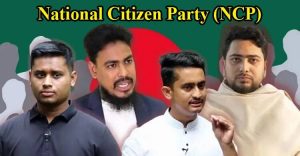
The biggest question in the public’s mind was who would be the alternative to the Sheikh Hasina government since her removal in August 2024. It was answered by the formation of a new political party by students, named the National Citizen Party (NCP). The motto of the party is to make Bangladesh a “Second Republic” to achieve the goals of “writing a new constitution and restructuring the political system” based on merit and competency. However, the new political party will face problems like resistance to reforms in bureaucracy due to “Hasina Loyalists.” They are not ready to accept the change in the political and bureaucratic structure, which will eventually send corrupt officers home. The NCP, if it comes into power, will have to secure the protection of minorities and the secular structure of the Bangladesh Republic. The aim should be to create a democratic political system with equal opportunities for everyone, regardless of their religion, race, or gender.
Lesson for Pakistan
Pakistan can learn a lesson from Bangladesh’s situation about the revival of student unions. If not given a voice, they can even topple an authoritarian regime. Zia ul Haq banned the student unions in 1984, which curbed the way for talented future leaders to participate in politics. The toppling of Ayub Khan’s government in 1968 following the protests of students and Sheikh Mujib-ur-Rehman being a student union leader was a nightmare for power snatchers. Hereditary politics was promoted since the factory of producing political leaders was banned by a dictator. Student unions give a voice to the students regarding their political concerns. They should be given a platform to express themselves freely.
Diplomatic Opportunity
Pakistan has a huge diplomatic opportunity to tap into the openness of the new government about restructuring their foreign diplomacy. The India-centric foreign policy during the Sheikh Hasina government has changed, and it is now more focused on other regional countries. We can build strong ties through an increase in trade volume and the exchange of cultural and educational programs.
Conclusion
The power corridors should not forget that if a 15-year-long authoritarian Sheikh Hasina regime can fall, they are on the edge of being obliterated by students and common citizens. These students are fans of revolutionary leaders like Bacha Khan, and poets like Faiz Ahmed Faiz and Ahmed Faraz. The students of Bangladesh have set an example for all the oppressed people around the world: if united against oppression, victory is yours. The tyrannical rule comes to an end, and the truth and freedom emerge victorious.






